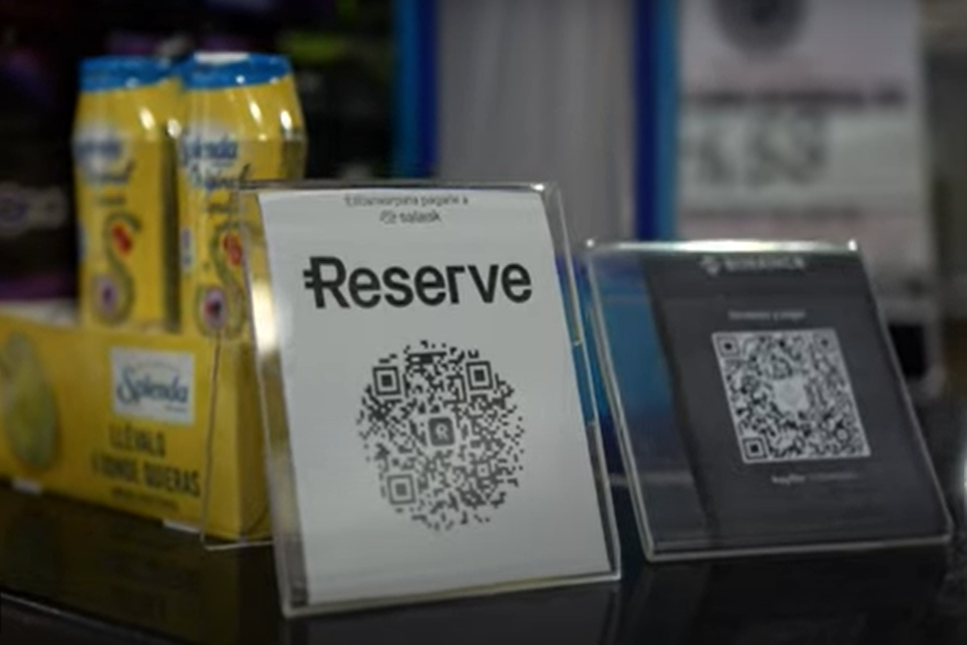
After a Simón Bolívar-like entry into the Latin America stablecoin scene in 2019, Reserve Protocol announced on Monday that it will stop all deposits and withdrawals to fiat currencies in six of the countries where it has the most users: Venezuela, Argentina, Colombia, Ecuador, Peru, and Panama.
The popular stablecoin wallet has been a crucial tool to escape hyperinflation in Venezuela and to allow the country’s migrant workers in neighboring countries to exchange money with family and friends across borders more easily.
The wallet service will be shuttering fiat operations on the third of August, after which users will only be able to trade between stablecoins (eUSD, USDC, USDT, and DAI) and cryptocurrencies (ETH and BTC). Mexican users and fiat currency will not be affected.
Reserve Pay App in Latin America
It makes sense for a project that believes that it can end inflation to pin its hopes on Latin America - a region that has been plagued with high inflation for decades. And in no country did Reserve have a more fundamental role than Venezuela.
The use of stablecoins has been a lifeline for Venezuelans. When Reserve started operations in the country in 2019, people were desperately looking for an affordable means to protect their earnings from the devaluation of the peso, as the country was being devastated by 3000% yearly inflation, and international sanctions made foreign money inaccessible.
Not all stablecoins are equally stable, nor are all wallets equally reliable. According to the IMF, the strength of the Reserve Protocol is that it offers “the benefits of crypto but without their extreme volatility.”
This stability was a key factor for Venezuelans abroad. The country has the second largest migrant population in the world, who use Rpay to send money to family back home.
“For beneficiaries of remittances from the six million Venezuela migrants and refugees spread across Latin America, Reserve has proved successful in preserving savings and protecting their livelihood.” - Crypto Assets and CBDCs in Latin American and the Caribbean, IMF Report, March 2023
Reserve's popularity in Latin America is not only due to the stability of its protocol but also a product of the marketing strategy it used in the region.
Through a community-based approach, Rpay recruited reserve rangers - users that, in exchange for small rewards, spread the word about the platform on social media, online forums, learning events, and one-on-one conversations.
Speaking to Rest Of World, one of the thousands of volunteer rangers said, “It’s more than just sending and receiving money.” He added, “You’re part of a community.”
These community leaders made Rpay the success it is today in Latin America - in Venezuela alone, Rpay is used by more than 600,000 users and 26,000 retailers.
OFAC license
It is perhaps this community’s anti-government spirit that convinced the U.S Organization of Foreign Asset Control (OFAC), in the midst of a brutal North American crackdown on crypto, to emit a special license to Reserve that allows it to provide stablecoin payments in countries where U.S economic sanctions are in place, as is the case with Venezuela.
Announced by Reserve last Thursday (June 29th), the license is similar to the ones that allow Visa and Mastercard to operate in Venezuela. Rpay CEO Gabriel “Gabo” Jiménez said the license “allows us to offer a more reliable and sustainable service to Venezuelan users.”
The company faces severe legal sanctions if it allows Venezuelan government employees to have a Rpay wallet. Despite having to act according to U.S. sanctions, the license reduces the risks of non-compliance.
So if it just became easier to operate in the country, why leave now?
In the announcement made on Monday and signed by Jiménez, the project cites “banking challenges of working with crypto processing firms” and Reserve's “long-term vision.”
Unpacking Reserve's decision to leave LATAM
“Today, our best option is to take a step back, rebuild, and come back stronger with new alliances and more solid bases.” - wrote Jimínez in the announcement
To operate in Latin America, Rpay relies on independent liquidity providers that act as intermediates between users and the app in exchange for a small fee. However, having such partners is not conducive to the partnerships Reserve hopes to establish with local bank institutions. Jimenez states, “Cryptocurrency enterprises dependent on banking partnerships face important challenges, especially after the FTX incident. Banks are inclined to drop cryptocurrency clients due to concerns of regulatory scrutiny.”
In the long term, the project wants to be a worldwide solution that offers impeccable service to all its users. To better fulfil those ambitions, the company revealed that in the last months, it has been drawing up a new strategy. The first order of business is to retreat from Latin American markets (except for Mexico) to its home base - the U.S.
From the U.S., the team hopes to create an international customer base, as explained in the goodbye letter to Latam “When people receive money in an app, they become a user of that app. So we think we can start to grow in many places around the world, where our users are sending and receiving money.”
Venenzuela’s migrant population mostly resides in its neighboring countries of Colombia, Argentina, Ecuador, and Brazil. A significant number of Venezuelans also reside in the United States.
Like Venezuelans, people from all over the world flee to the U.S. in search of a better life or as a refuge from challenging situations in their home country. These are the people Reserve wants to reach. To do that, it’s risking the ground that led it to flourish. Will it persevere?

